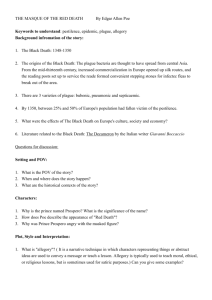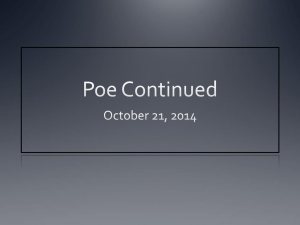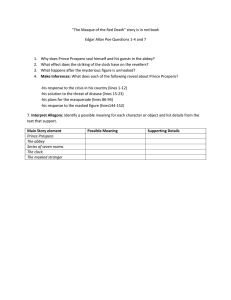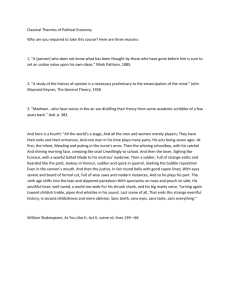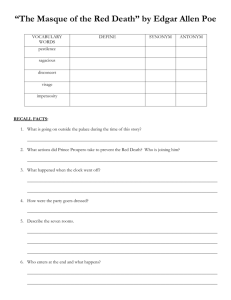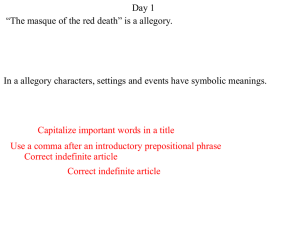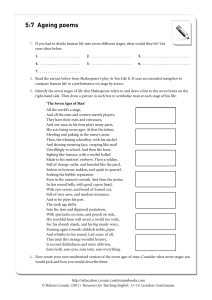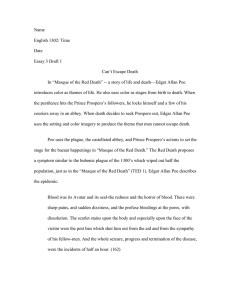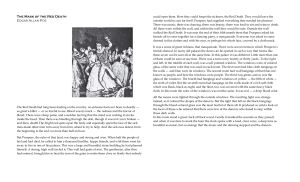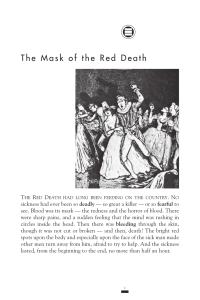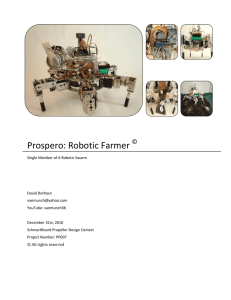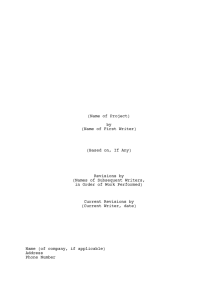the masque of the red death
advertisement
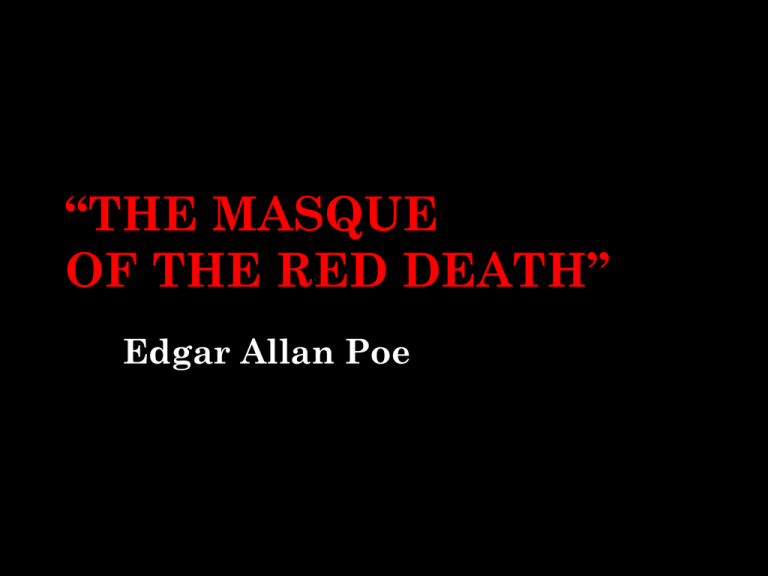
“THE MASQUE OF THE RED DEATH” Edgar Allan Poe • Symbolism used to describe the relationship between the Red Death and Time. – Clock symbolizes the significance of time – Represents time running out; doom or death approaching. • Drapped in black – Clock takes on human aspects • Author uses figurative language to give clock human characteristics. – Lungs – Face – Constant interruption refers to one or more people dying when the clock strikes on the hour. • May be read as an allegory, a work with two or more layers of meaning. • Allegory suggested within the seven rooms. – Each room represents the seven stages of life from birth to death – Rooms are laid out from East to West, signifying the course of the sun which measures our earthly time – “All the world’s a stage” form As You Like It… • May have been inspired by an outbreak of the Bubonic Plague that killed around 25 million people in Europe in the Mid14th Century. – Poe considers historical events such as the Black Death / Plague to write stories of this nature. – Before 20th Century medicine, an outbreak could be a source of terror • Poe uses blood, the very substance of life, as the mark of the Red Death – “Scarlet stains upon the body and especially upon the face of the victim” – This passage represents the presence of the Red Death. • Prince Prospero’s name suggests happiness and good fortune. • Prospero’s palace represents a way to “wall out the threat of death.” – Outside the Abbey, people are dying from the Red Death, inside people are celebrating to escape it. • The Abbey represents a fortress against or immunity from death. • In this context, mad means insane. • While appearing to admire Prospero, the narrator casts doubt on Prospero's sanity by indicating that even his followers need to reassure themselves that he is not mad. • Masked figure represents the Red Death – Prospero has locked himself and his followers away to avoid the Red Death and is insulted by the reminder of it. – The figure frightens the guests and spoils the party. • All the world's a stage, • And all the men and women merely players; They have their exits and their entrances, And one man in his time plays many parts, His acts being seven ages. At first the infant, Mewling and puking in the nurse's arms. Then, the whining school-boy with his satchel And shining morning face, creeping like snail Unwillingly to school. And then the lover, Sighing like furnace, with a woeful ballad Made to his mistress' eyebrow. Then, a soldier, Full of strange oaths, and bearded like the pard, Jealous in honour, sudden, and quick in quarrel, Seeking the bubble reputation Even in the cannon's mouth. And then, the justice, In fair round belly, with a good capon lined, With eyes severe, and beard of formal cut, Full of wise saws, and modern instances, And so he plays his part. The sixth age shifts Into the lean and slippered pantaloon, With spectacles on nose and pouch on side, His youthful hose, well saved, a world too wide For his shrunk shank, and his big manly voice, Turning again toward childish treble, pipes And whistles in his sound. Last scene of all, That ends this strange eventful history, Is second childishness and mere oblivion, • Sans teeth, sans eyes, sans taste, sans everything.
